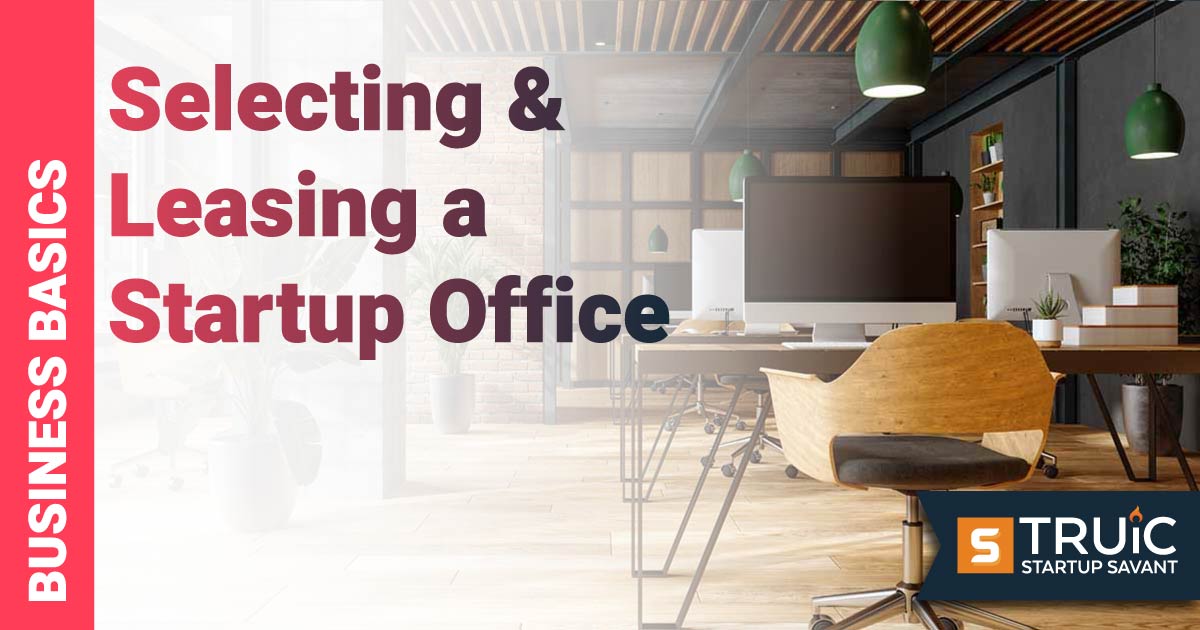While some wildly successful startups launched out of a garage, it is safe to say that their level of success wouldn’t have been possible without a change of scenery. Your startup’s space is an essential part of its success. Not only does this space inform productivity, but it can also limit your growth if it isn’t conducive to your company’s needs. That being said, we are here to help you decide the right office space for your startup based on the stage your company is at, its needs, and the many types of office spaces available with this guide to selecting and leasing a startup office.
Startup Office Space Guide
Finding the right space for your startup is crucial to its success. Your office space is conducive to productivity and a happier workplace. But, knowing your space needs can be difficult; we are here to help with this guide to startup office spaces.
What to Consider Before Choosing a Startup Office
The last thing you want to do when choosing a startup office is to go into it blindly. There are several considerations you should make before starting the search for your office space that can drastically improve your experience and help you secure the right office space for your company. Here is what you need to consider before choosing a startup office space:
- The number of employees you currently have and how quickly your team will grow.
- Features and fixtures your startup requires to be successful such as warehouse space and conference rooms.
- The location of your startup (specifically where your company will be located based on factors like budget, taxes, and city regulations).
- The type of startup you're operating, for example, if your company will need a space that requires certain building requirements in order to operate legally.
- Your budget or how much you are able to spend on rent and operating expenses.
- Finally, how flexible each of your wants, needs, and requirements are and what you can afford to do without.
Determine the Type of Space That’s Right for Your Startup
As an entrepreneur, there are several types of office spaces you can choose from to suit your company’s needs. From home offices to a more traditional office lease, the right office space depends on your startup’s needs and wants.
Home Office
Not all startups need to lease a separate office space right away. Many startups begin their journey from the comfort of their home office. A consideration you will need to make before settling on this office space is whether you are able to operate a business from your home.
Best For: Small startups and beginning startups
Temporary Office Space
For companies that are growing quickly enough to need an office space but not fast enough to secure a traditional office space, a temporary office space provides your company with the opportunity to connect with your team without the commitment of a long-term lease.
Best For: Growing startups, small to mid-sized companies
Shared Workspace
Shared workspaces are similar to coworking spaces; however, they are typically used for more established businesses. These spaces typically office traditional office equipment such as copiers, fax machines, and even executive suites with conference rooms.
Best For: Established businesses
Coworking Space
Coworking spaces are generally used by freelancers, startup founders, and remote workers as an alternative to working from home. Many offer amenities such as kitchens, rentable conference rooms, and more.
Best For: Small startups, new companies, small teams
Incubator/Accelerator
Incubators and Accelerators are spaces that are developed with the purpose of providing entrepreneurs with the space and resources they need to be successful. You can expect this type of office space to provide you with a litany of opportunities for networking and collaboration as well as resources to help you develop products and grow your business.
Best For: Startups in the beginning growth stages
Traditional Lease
Ready to establish a home base for your business and team? A traditional lease is going to be your best bet. Essentially, you are going to find a space that will work for your startup based on your startup’s needs and wants. Since these leases can be long, you need to be sure this is the right space for your startup and that you are at the stage where renting an office space is the right choice.
Best For: Established startups, growing companies
Types of Commercial Leases
Gross Lease
Often referred to as a full-service lease, this type of lease essentially means that the tenant pays only the base rent cost. The property owner pays all operating costs such as utilities, property taxes, insurance premiums, and maintenance expenses.
Modified Gross Lease
In contrast, a modified gross lease means the tenant is responsible for only the base rent at the beginning of the lease term. However, as the agreement continues, the tenant takes on a percentage of the operating costs such as utilities, maintenance, and taxes.
Net Lease
A net lease requires the tenant to pay the base rent as well as some or all of the operating costs and expenses that the property owner would typically incur. Depending on the agreement, the tenant may be responsible for paying only property taxes, maintenance costs, or utilities (or a combination of the costs).
What Is a Commercial Lease Agreement?
A commercial lease agreement is a legally binding agreement between the landlord or property owner and the business or tenant. The agreement should include vital information about the lease amount, additional expenses to be paid by the tenant such as utilities, maintenance costs, and property taxes, as well as the duration of the lease and how the property will be used.
The rights and responsibilities of both the landlord and tenant should be clearly outlined in the lease agreement and understood fully before signing the lease.
How to Find a Startup Office Space
Now that you understand the types of office spaces available to you and what legal responsibilities you should expect when taking on a commercial space, you’ll need to figure out how to find the right space for your startup’s needs:
Online Listings
If you are searching for a commercial office space independently, the internet will be your best friend. Be sure to utilize legitimate sites for searching potential properties such as Zillow or Redfin to avoid scams and keep your information safe.
Leasing Agents
Perhaps searching for and securing a commercial office space on your own isn’t your cup of tea. Hiring a leasing agent provides you with the help of a professional and relieves some of the workload of finding the right office space. Additionally, you can feel confident knowing that your potential office spaces are vetted and legitimate.
Tenant Rep Brokers
A Tenant Rep Broker, alternatively, helps facilitate the leasing agreement process. This ensures you have an advocate in your corner to help you understand the leasing process and hopefully prevent you from entering an agreement that isn’t in your best interest.



